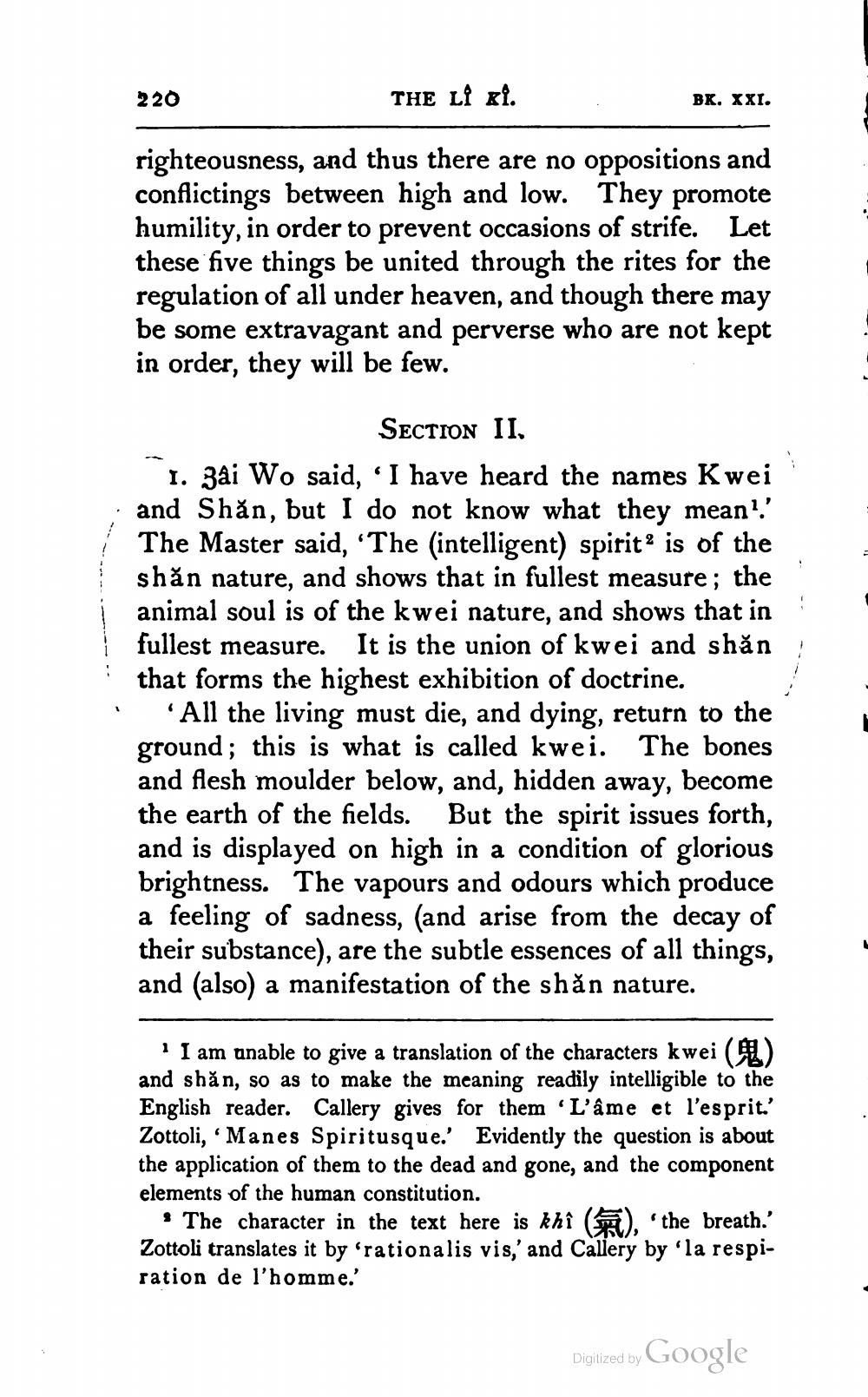________________
220
THE LÎ xi.
BK. XXI.
righteousness, and thus there are no oppositions and conflictings between high and low. They promote humility, in order to prevent occasions of strife. Let these five things be united through the rites for the regulation of all under heaven, and though there may be some extravagant and perverse who are not kept in order, they will be few.
SECTION II, 1. Zài Wo said, 'I have heard the names Kwei. and Shăn, but I do not know what they mean?' The Master said, 'The intelligent) spirit? is of the shăn nature, and shows that in fullest measure; the animal soul is of the kwei nature, and shows that in fullest measure. It is the union of kwei and shăn ; that forms the highest exhibition of doctrine.
"All the living must die, and dying, return to the ground; this is what is called kwei. The bones and flesh moulder below, and, hidden away, become the earth of the fields. But the spirit issues forth, and is displayed on high in a condition of glorious brightness. The vapours and odours which produce a feeling of sadness, (and arise from the decay of their substance), are the subtle essences of all things, and (also) a manifestation of the shăn nature.
"I am unable to give a translation of the characters kwei (2) and shăn, so as to make the meaning readily intelligible to the English reader. Callery gives for them 'L'âme et l'esprit.' Zottoli, 'Manes Spiritusque.' Evidently the question is about the application of them to the dead and gone, and the component elements of the human constitution.
. The character in the text here is khi )the breath.' Zottoli translates it by 'rationalis vis,' and Callery by 'la respiration de l'homme.'
Digitized by Google




